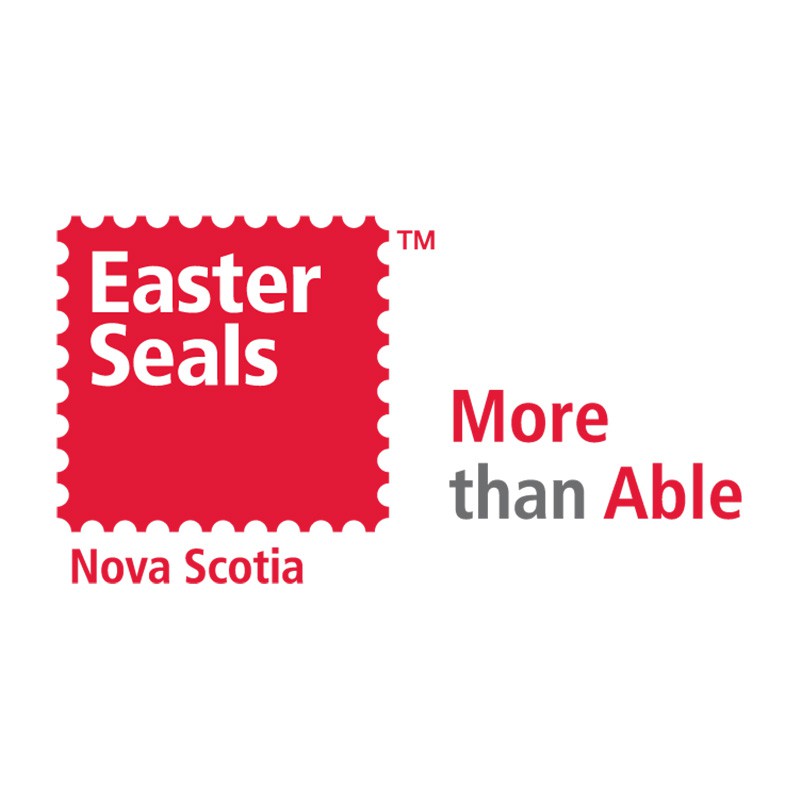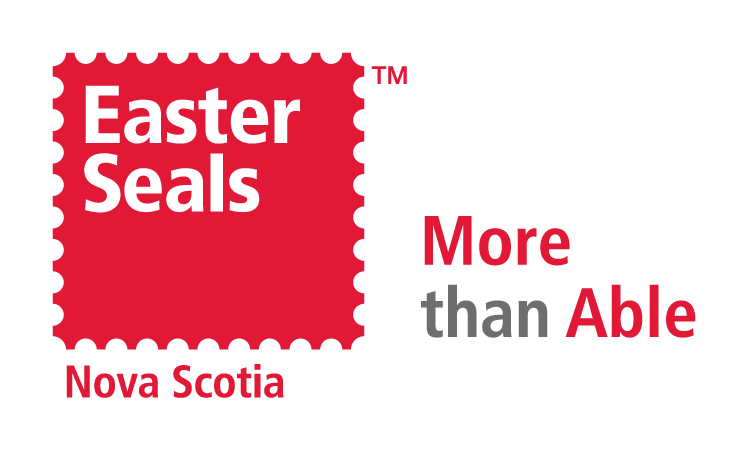Easter Seals Nova Scotia
Registered Name: Easter Seals Nova Scotia
Business No: 131640922RR0001
This organization is designated by Canada Revenue Agency (CRA) as a registered charity. They comply with the CRA's requirements and have been issued a charitable registration number.
This charity is fully set up with CanadaHelps, allowing for faster donation processing and access to more features
Programs & services for persons with disabilities; camp, inclusive recreation, skills training & supported employment, & assistive devices.

Our Mission
We advocate for a barrier-free Nova Scotia and provide top-quality services promoting mobility, inclusion and independence for Nova Scotians with disabilities. We have served Nova Scotians with disabilities for more than 80 years.
About Easter Seals Nova Scotia
Registered in 1931, our primary focus is to deliver quality services and programs to persons with disabilities in Nova Scotia. Easter Seals Nova Scotia is a not-for-profit organization based in Halifax, Nova Scotia.
We help children, youth, and adults from Yarmouth to Cape Breton. In 2017-2018, we directly helped more than 2,700 Nova Scotians living with a disability, and by extension, we helped thousands more by enabling a loved one or a friend to access one of our programs.
The need to support Nova Scotians with disabilities is great. According to Statistics Canada data from 2006, 20 per cent of Nova Scotians identify themselves as living with a disability. This is the highest provincial percentage in the country. Our programs are designed to enable Nova Scotians with disabilities to participate in camp, sport and active living programs, to have access to affordable wheelchairs and other mobility equipment, and to acquire job skills training.
Nova Scotians with disabilities seek equality and inclusion, and access to independence and opportunities that come with full citizenship. Our ongoing work involves meeting the needs and aspirations of our clients and trainees.
Our Programs and Services
Barrier-free Camp Tidnish
In partnership with the Rotary Club of Amherst, Easter Seals Nova Scotia hosts and operates Camp Tidnish near Amherst, Nova Scotia. Camp Tidnish is the only barrier-free and fully accessible summer camp serving Nova Scotian children, youth, and adults with physical and intellectual disabilities. Our professional and dedicated staff provides exceptional care and programs for our campers. Our camp offers several interactive and fun overnight camp experiences including boat tours of the Tidnish River, hay rides, fishing, art activities, and swimming in our indoor pool. Camp Tidnish also provides campers an opportunity to forge friendships, and to enjoy the thrill of independence of being away from home! Children, youth, and adults from across Nova Scotia attend our camp.
Wheelchairs & Mobility Equipment
We have programs that help Nova Scotians with disabilities access wheelchairs, assistive devices and other mobility equipment. In partnership with the Nova Scotia Department of Community Services, uninsured Nova Scotians younger than 65 (and who meet program criteria) may obtain a wheelchair based on a medical prescription from a health care professional.
Assistive Devices
We also help applicants acquire a wide variety of equipment including wheelchairs and seating inserts, walkers, home safety equipment and various orthotic/orthopaedic devices.
Take Part
We provides Nova Scotians with disabilities with an opportunity to participate in recreation and sport programs.
Sledge Hockey
Our Learn to Sledge program provides an opportunity for children and youth with disabilities to participate in one of Canada’s favorite pastimes, hockey. Sledge hockey participants learn to use their bodies to push themselves on their sleds, and to move, pass, and shoot independently. Learn to Sledge contributes to the wellness in our community by strengthening and supporting healthy child development, and encouraging participation in fun activities that build strength, dexterity, friendship, teamwork, and problem-solving abilities.
Boccia
Boccia (pron.: /boch-?) is a precision ball sport, related to bowling. The sport is contested at local, national and international levels, by athletes with severe physical disabilities. In 1984, it became a Paralympic sport, and is now played in more than 50 countries worldwide.

